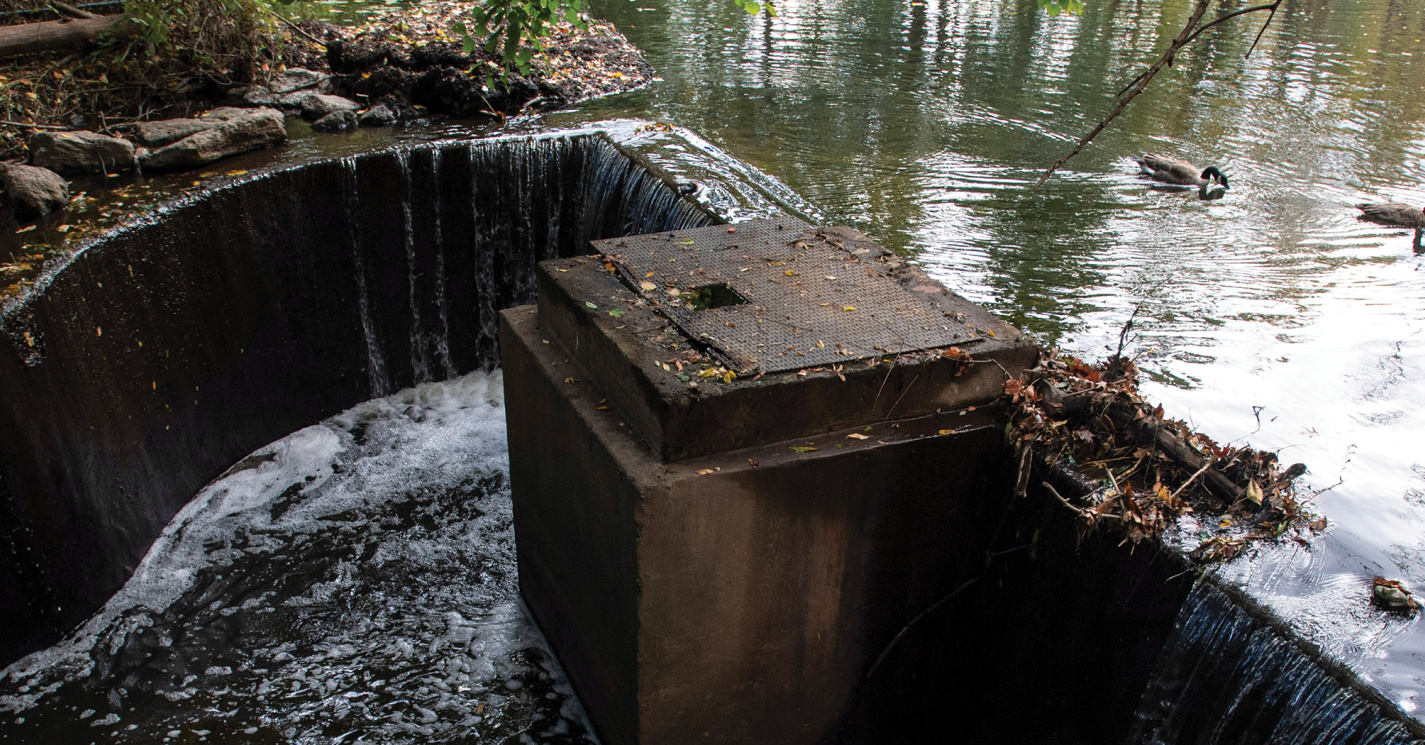Due to human-driven climate change, it’s predicted that in the coming years, global temperatures will surge to record levels. Already, people all around the world are dealing with daunting new challenges, and while cutting heat-trapping emissions is key, there are some impacts that are now unavoidable. This is where climate resilience—the ability of social, economic and ecological systems to cope with the impacts of climate change while preventing it from getting worse—comes into play. The social aspect of climate resilience has been the focus of Jess Lasoff-Santos’ research at the University of Michigan School for Environment and Sustainability (SEAS) for nearly 10 years, both while pursuing a master’s degree and a PhD which he will defend later this year.
Lasoff-Santos says he was introduced to the field of environmental psychology soon after he received his undergraduate degree and his interest was immediately piqued. From there, it took one Google search, for “environmental psychology master’s,” to find his way to SEAS. “I was focused on environmental communication but, as a fellow, ended up working with a postdoc who was engaged with environmental psychology,” says Lasoff- Santos. “I just thought it was the coolest thing. And then they gave me a seminal paper written by [SEAS Associate Professor] Raymond De Young, and I was hooked. I was so nervous and excited to meet him.”
This chance introduction to the field of environmental psychology led Lasoff-Santos to specialize in Behavior, Education and Communication, and he says his research interests have evolved from there. “The studies I’ve conducted since coming to SEAS have often been as a result of conversations with Professor De Young about the way things are going and the need to help people engage with their communities and, in doing so, help them help themselves psychologically, such as dealing with climate distress,” says Lasoff-Santos. “It’s a real thing that will become more and more common as folks begin to feel the effects of climate change, which is why working on climate resilience is so important.”
While pursuing his master’s degree, Lasoff-Santos worked with De Young on a study about intentional agricultural communities—which are groups of people who have decided to live on a shared property centered around growing their own food. Overall, he says that they were interested in looking at how engagement with local food systems impacted people’s lives. The findings were mixed, but, in general, they revealed that people in these types of communities tended to have a high sense of social connectivity and psychological well-being, and that they were contributing to the greater good.
“There’s limited research on folks living in agricultural intentional communities. Our paper is pretty much where it begins,” says Lasoff-Santos. “We were looking specifically at intrinsic motivation—doing something for the inherent satisfaction rather than external praise or rewards—which people in these communities exhibited a high level of when it came to community food. They were living and working with people who had similar social values, environmental concerns, etc., and demonstrated signs of well-being in other lifestyle areas.”
The findings also reflected something that would inspire Lasoff-Santos to hone his research on climate resilience, which was the fact that the people living in the agricultural intentional communities had more positive feelings about their abilities to combat climate change. “This indicated that they felt they were contributing in some way to mitigating the climate crisis, and I wanted to investigate this further,” says Lasoff-Santos.
As part of his PhD research, Lasoff-Santos has looked at people who work in municipalities across the U.S. doing climate change mitigation and adaptation work, which has revealed some common threads, including the importance of collaboration and connectivity. “A key finding of my recent research is that, ideally, folks working in climate adaptation and resilience fields should come together to collaborate and come up with a common definition of ‘climate resilience’ so they are working toward the same goals,” says Lasoff-Santos. “This type of connectivity leads to more productive outcomes.”
Another study, also focused on municipal government, revealed that different forms of climate resilience planning can affect the psychology of the municipality’s residents. “We found that community-centered and participatory planning produced a higher level of confidence in their own knowledge about how to protect themselves from climate change,” says Lasoff-Santos. “Essentially, people who believe in climate change and in their own abilities to handle it have higher positive feelings toward climate change.”
Generally speaking, Lasoff-Santos says that lowering extreme levels of climate distress can make people more likely to engage in pro-environmental behaviors. “In short, in post-disaster recovery—including in the aftermath of climate-related impacts—social connectivity, emotional well-being, positivity and hope all matter,” says Lasoff-Santos.
De Young, who leads the SEAS Environmental Psychology Lab, where Lasoff-Santos is the manager, says this type of research is especially important for adapting to the climate crisis. “What Jess is working on is an expanded notion of adaptation. He moves beyond the current concept of adaptation where we primarily alter existing physical systems and infrastructure so that they might, for a time, survive the climate crisis. His research revives a classic psychological form of adaptation where our responses do not try to alter, but rather accommodate, reality. His work is aimed at helping people change their expectations, sense of entitlement and life patterns to better fit the new reality.”





